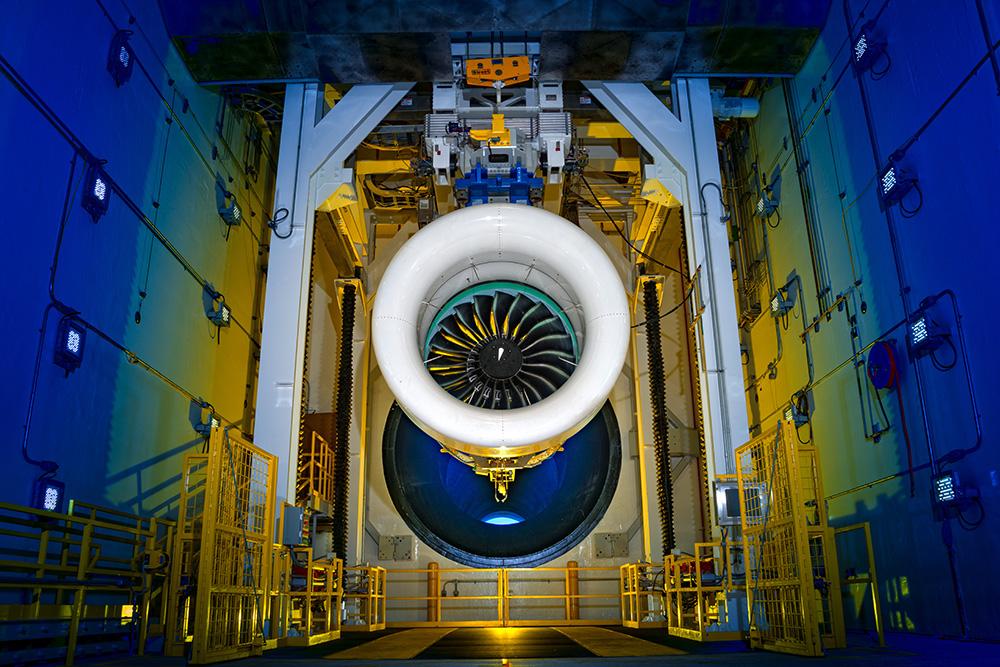
Pratt & Whitney’s Line Maintenance Services (LMS) team has developed a new engine fan case repair capability that it says could save operators more than half a million dollars and reduce turnaround time from a month to less than a week.
The OEM worked in collaboration with fan case supplier Japanese Aero Engine Corporation and MTU Aero Engines to develop the capability, which entails removal and replacement of an engine’s thermal conform liner (TCL)—one of the most exposed parts on an engine. TCLs can be impacted by unpredictable incidents, such as bird strikes or foreign object damage.
“We have close collaboration with the mechanics, inspectors and engineers on the ground. We know what causes customers pain and we try our best to find optimized ways to help them,” says Tucker Snyder, rotational engineer on Pratt & Whitney’s Dallas-based LMS team.
Prior to the introduction of this new repair capability, Pratt & Whitney says its options for addressing this type of damage were either costly replacement of the entire fan case or replacement of the TCL with a non-machined TCL, which required the fan case to be sent to a repair station for the liner to be machined down to size.
“Either option requires full removal of the engine, delivery to the repair site and time to complete the repair,” says a spokesperson for Pratt & Whitney. “This new repair delivers a pre-machined TCL, which allows us to just replace the damaged part without requiring the engine to be sent into a shop for a full fan case replacement. It decreases [turnaround time] from months to days, allowing the engine and aircraft to return to service much quicker.”
Pratt & Whitney’s LMS team has begun offering the repair capability for the PW1100 engine at its Dallas shop or in the field. It just completed its first repair job at a customer site in Poland.
The OEM is now looking to expand this repair capability to other in-service next-generation product family engines, including the PW1500, which powers the Airbus A220, and the PW1900, which powers the Embraer E-Jet E2 family.





